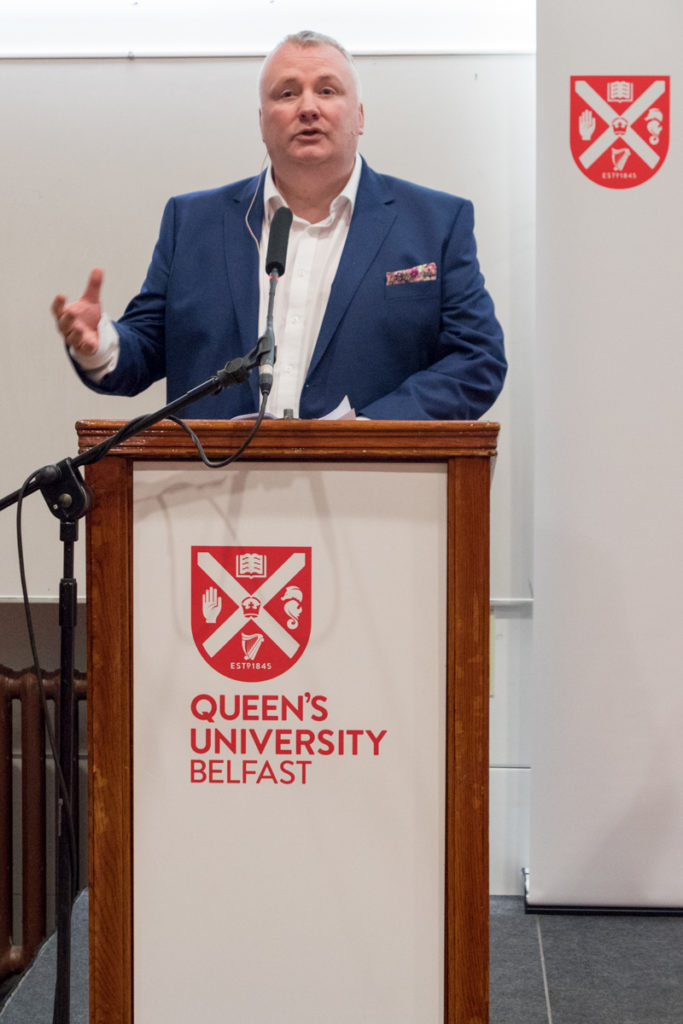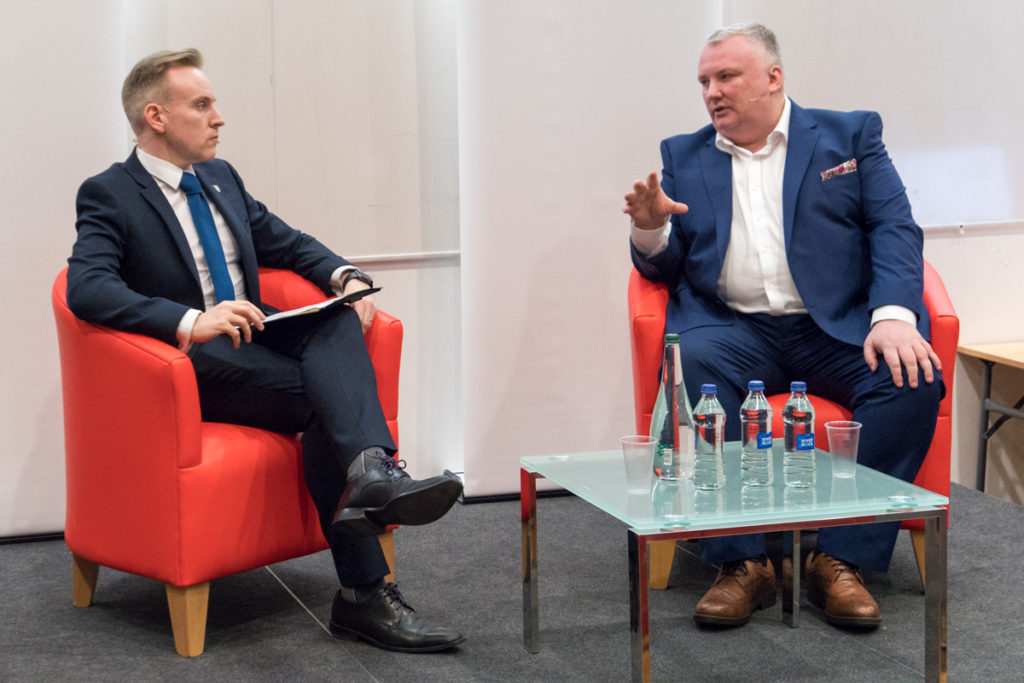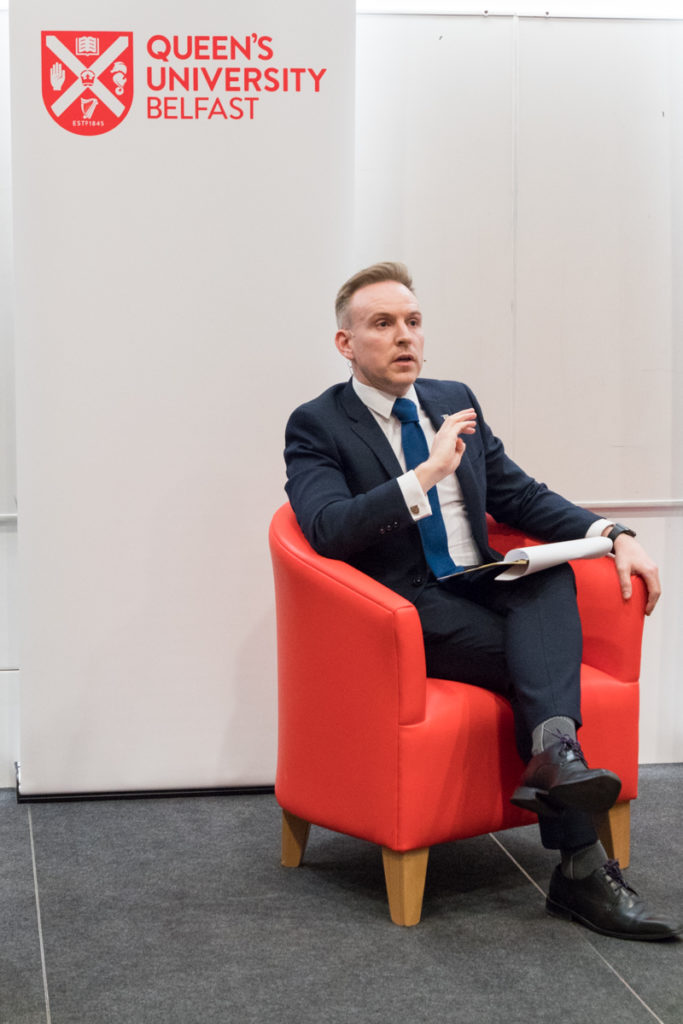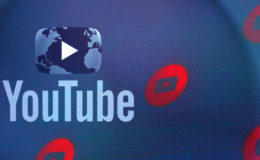by Allan LEONARD for FactCheckNI (26 February 2019)
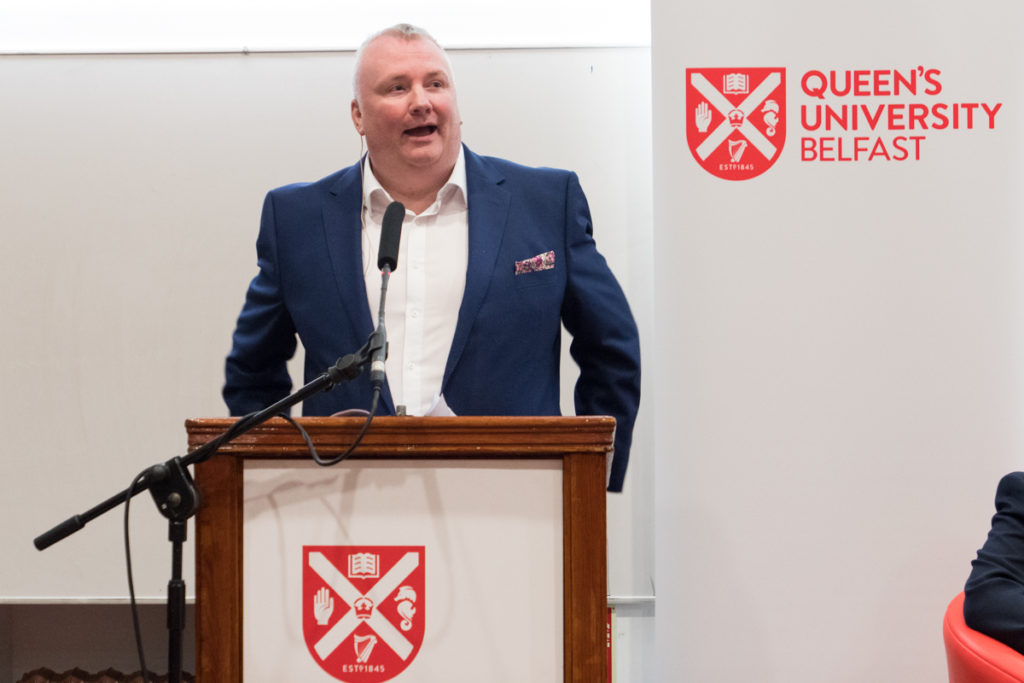
As part of their engagement programme, Queen’s University Belfast hosted a lecture by radio and television personality, Stephen Nolan, who was introduced by Ryan Feeney. Much of Nolan’s lecture was an autobiography of how he has developed his career in journalism and working for the BBC. His views on the topics in the lecture title — “Enhancing the Democratic Debate in the Era of Fake News” — were teased out during the question and answer session.
He described his work as “genuinely life important”, where he feels that “powerful forces suppress working-class voices” with a contempt that there are those who are “mad” or not intelligent enough to warrant a platform. Nolan is proud of providing that platform. He self-acknowledged that this includes inviting the likes of loyalist activist Jamie Bryson onto his shows.
Nolan also said that he tries to “burst the bubbles” of statutory agencies of government who feel that they are not accountable to the public. He gave the example of his broadcast interview with Jean Faulkner, an older person who was scheduled to be moved from her residential home, without anyone consulting her views; subsequently the authorities halted their decision.
He defended his style of interrogation: “Don’t underestimate the power of an individual citizen shouting. What is wrong about being ruckus about what is wrong?”
Indeed, he challenged a questioner representing the Our Future Our Choice (OFOC) campaign (which is calling for a further referendum on the UK’s membership of the European Union): “Are you really angry? Where are the protests? Where are you shouting and screaming? I would create some noise.”
A questioner suggested that the BBC was part of the problem, being obsessed by conflict not resolution, putting everything in a conflict framework. (This is an argument put forward by proponents of peace/constructive journalism.) Nolan replied, “Welcome to media worldwide”, and that a good news story will have to work harder to get on top of the news agenda. The questioner instead suggested that it wasn’t fake news that was the problem, but “feeble news”: “Young people have had cold water poured over them” with what he saw as a constant barrage of negativity.
Similarly, Nolan was asked what role, if any, he saw in contributing toward societal reconciliation in Northern Ireland. He spoke about his work about the Shankill Butchers and covering the flags protests, which presented challenging questions for loyalists. Nolan recognised that some in the community can feel that journalists are working against the community. He suggested that maybe he should work on longer, reflective, documentary pieces of work.
A question on whether Nolan considered himself in the same camp as a radio “shock jock” got the discussion onto misinformation. Nolan answered: “A shock jock doesn’t have journalist qualifications. In my case, I get complaints but OFCOM have not upheld any against me. That’s because I have to get my facts checked.”
I asked Nolan his views on social media and how it has affected his work, particularly in regards to those calling into his live programmes. He replied with some strong statements: “Twitter is a force out of control … The lack of regulation is a farce.” Nolan acknowledged that social media can empower citizens for a cause, such as the young people from OFOC sitting behind me. But he wants to see social media regulated, so as to accept some media responsibility.
Someone asked Nolan how should we counter fake news usurping democratic engagement. He answered that trusted sources matter and that news “brands” will become more important.
Relatedly, Paul McErlane argued that “shouting is not good”; it reduces debate to “yes and no”, “us and them”, epitomised by “Trumpism”, which has been delivered by such unregulated social media. Nolan replied that he serves news to those who want to shout: “I create an alternative atmosphere to news consumption. It’s a news programme for them.” He added that “shouting is supported by the public”, citing viewing poll data for his programmes, including ABC1 individuals [non-transparent data, however?].
Nolan remained defiant about his journalistic style: “I will raise my voice! I will be aggressive!” The way he saw it, he explained, was that broadcasters want to get as many people involved in the discussion: “With me, they get the authentic me. They know for sure that I’m no better than them. In me they have a place to talk with me.”
In sum, Nolan highlighted the professional norms that journalists work to, including topic research, fact checking, internal checks and balances, and a corrections policy. No one is accusing Stephen Nolan of perpetuating “fake news”.
Yet some criticise how he “enhances the democratic debate”. Is all this shouting good for reconciliation, for example? Perhaps not, but that’s not Nolan’s motivation. Rather, in his own words, it’s to present a breaking news platform for those whose voices aren’t usually heard.
But throughout Nolan’s lecture and subsequent discussion, there were moments of self-reflection, particularly in regards to his relationship with his core listening audience and local communities. Breaking away from the breaking news cycle could serve Stephen Nolan and wider audiences well, with his unique perspective and authenticity.
PHOTOS

